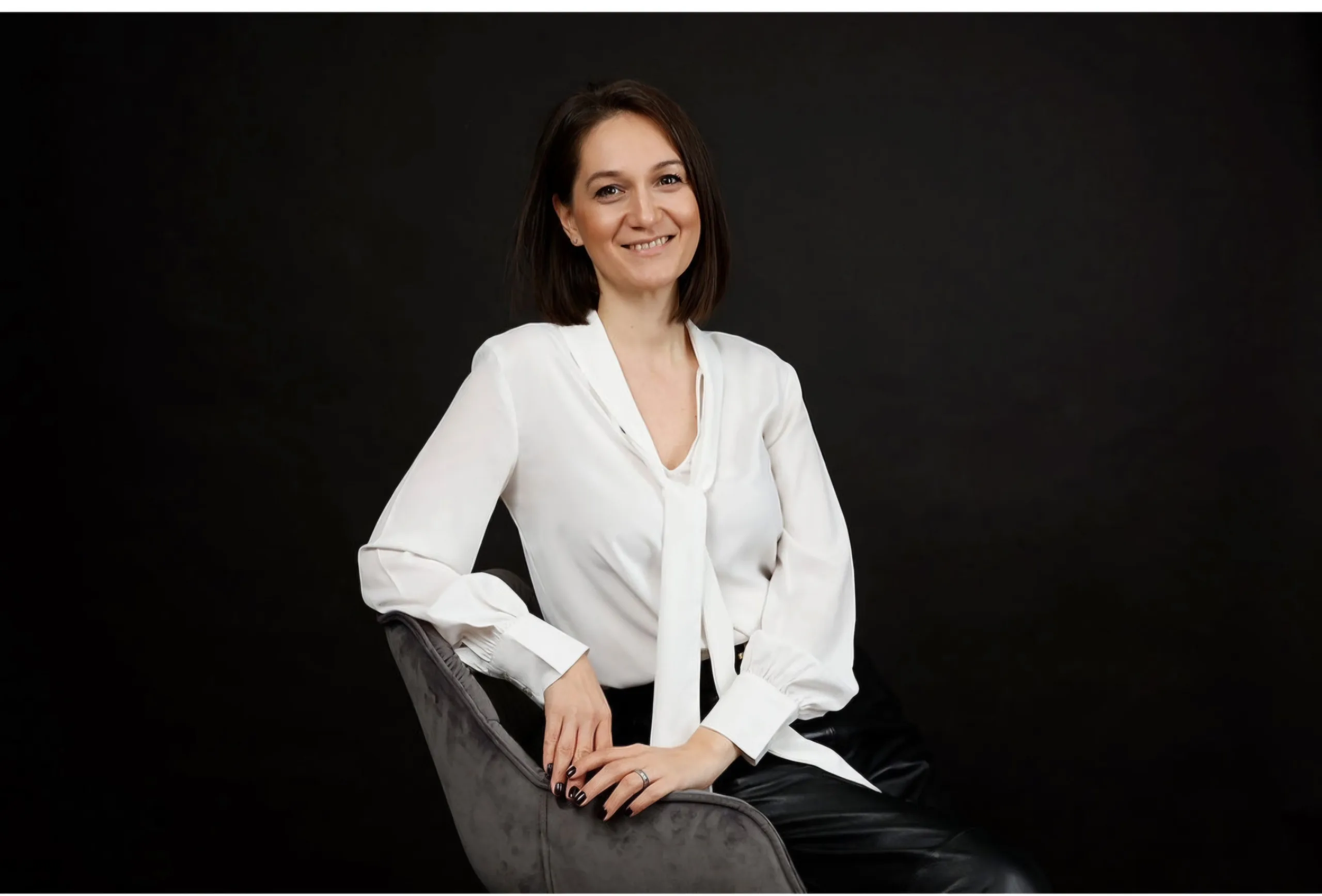With extensive experience in the banking sector, both nationally and internationally, Ruxandra has been an accredited coach for over 6 years and a trainer for leadership programs. Her commitment focuses on achieving lasting and sustainable change, going beyond simple problem solving.
Believing in the potential of each individual and having a passion for working with people, Ruxandra stands out for her dynamic presence in the sessions she leads.
Her belief is that every experience she has gone through had a common element – people – and she has leveraged each interaction to learn and discover new things. This understanding has helped her realize that each of us is creative and abundant in resources, capable of achieving any goal we set.
Her method is based on asking powerful questions and active listening.
B.S.: – Hello Ruxi, I would like to introduce you to our community, differently than just listing your professional achievements, and for that I will try to “dive” a little into your personal life. So, please tell us something about yourself, what hobbies do you have, what do you do in your free time, or maybe you have something in mind that could become a possible project in the future?
R.S.: – I like to spend my free time with my family. Together with our 8-year-old daughter, Ilinca, we enjoy outdoor activities, playing games, and moments of reading together. Personally, I am passionate and dedicated to learning and applying coaching techniques, especially for children. I think this passion could become a future project, where I can combine my coaching knowledge with the needs and potential of developing children.
By applying coaching techniques by parents and teachers, a significant impact can be created on children. By acquiring the skills necessary for future development, such as self-confidence and resilience, children can build a strong foundation for their long-term success. At the same time, parents and teachers can benefit from understanding and applying coaching practices in their relationship with children, thus contributing to a more positive and supportive environment for their development.
B.S.: – Over time, participating in courses as a trainer, I suppose there have been feedback from participants. I’m going to ask you how you integrated those suggestions to improve the content and teaching methods of the program?
R.S.: – The feedback I received was extremely positive, mostly. In addition to the verbal appreciation received at the end of the sessions, I also consider the high level of interaction from participants, the enthusiasm with which they return from breaks or on the second day of training, and the requests to participate in other Leadership Land training sessions.
Obviously, I take into account the feedback received to improve certain aspects of my presentation, when it exists, because I want to improve and personalize the learning experience for the participants.
B.S.: Does it help or hinder if one of the participants is hesitant about the information received, or is the type of person who believes they are smarter than the rest and asks more uncomfortable questions?
R.S.: – Although it may seem uncomfortable, it is often beneficial. This type of approach facilitates interaction and generates relevant discussions, bringing to the forefront perspectives and ideas that would otherwise remain unexplored. In situations where there is a risk of escalation, collaboration among participants becomes crucial to restore balance and maintain constructive dialogue.
B.S.: – Thank you very much.
R.S.: – You’re welcome.


